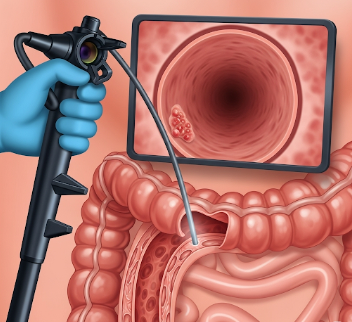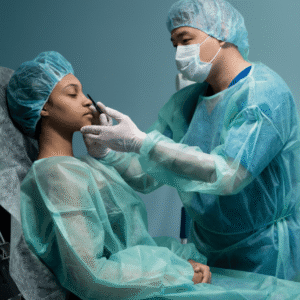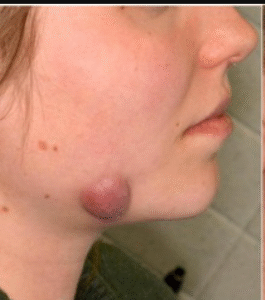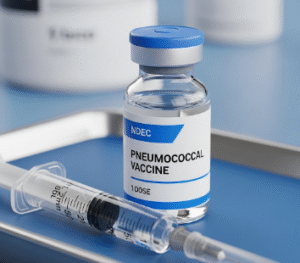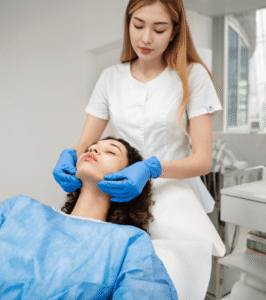Overview
A colonoscopy is a medical procedure in which a flexible tube with a camera (colonoscope) is inserted through the rectum to examine the inner lining of the colon and rectum. It is primarily used to detect abnormalities such as polyps, cancer, inflammation, or bleeding.
In South Korea, colonoscopy is widely available in modern hospitals and clinics, performed by highly experienced gastroenterologists. Advanced equipment ensures high-definition imaging, minimally invasive examination, and safe biopsy or polyp removal during the procedure. Colonoscopy is considered the gold standard for colon cancer screening and diagnosis of intestinal disorders.
What is a Colonoscopy?
A colonoscopy is a diagnostic and therapeutic procedure used to visualize the colon and rectum. It allows physicians to:
- Identify and remove polyps or abnormal tissue
- Diagnose colorectal cancer, inflammatory bowel disease, or infections
- Investigate causes of rectal bleeding, chronic diarrhea, or unexplained abdominal pain
- Perform biopsies for histological examination
Key components of the procedure:
- Colonoscope: A long, flexible tube with a light and camera
- Insufflation: Air or carbon dioxide is introduced to expand the colon for better visibility
- Accessory tools: Used for polyp removal, biopsy, or hemostasis
What are the Benefits?
Colonoscopy offers critical diagnostic and preventive advantages:
✔ Early detection of colorectal cancer, which significantly improves survival.
✔ Removal of precancerous polyps during the same procedure.
✔ Accurate diagnosis of intestinal disorders such as Crohn’s disease or ulcerative colitis.
✔ Minimally invasive and outpatient-based procedure with short recovery.
✔ High safety and precision in South Korean medical centers with expert gastroenterologists.
Procedure Details
1) How should I prepare for Colonoscopy?
- Bowel preparation: Patients follow a clear liquid diet and take prescribed laxatives to ensure a clean colon.
- Medication review: Blood thinners or certain medications may require adjustment.
- Medical assessment: Pre-procedure consultation to evaluate overall health and medical history.
- Fasting: Typically required for 6–8 hours prior to the procedure.
- Consent: Explanation of procedure, risks, and benefits.
South Korean hospitals provide detailed instructions and support to ensure optimal bowel preparation and successful examination.
2) What happens during the procedure Colonoscopy?
- The patient receives sedation or anesthesia for comfort.
- The colonoscope is inserted through the rectum and gradually advanced through the colon.
- The physician inspects the colon lining, identifies abnormalities, and may:
- Remove polyps using a snare
- Perform biopsy for further analysis
- Apply treatments for bleeding or inflammation
- The procedure typically lasts 20–60 minutes, depending on findings and interventions.
South Korean gastroenterologists emphasize gentle technique, high-definition imaging, and patient comfort during the procedure.
3) What happens after a Colonoscopy?
- Patients are monitored until sedation wears off; recovery is usually 1–2 hours.
- Mild bloating, cramping, or gas is common post-procedure.
- Patients are advised to avoid driving for 24 hours if sedated.
- Results are discussed with the physician, and biopsy results are usually available in a few days.
- Regular follow-up colonoscopies may be recommended depending on findings and risk factors.
Risks / Benefits
Potential Risks:
- ➤ Bleeding (especially after polyp removal)
- ➤ Perforation of the colon (rare but serious)
- ➤ Adverse reaction to sedation
- ➤ Infection (very rare)
Major Benefits:
- ✔ Early detection and removal of precancerous polyps
- ✔ Accurate diagnosis of intestinal disorders
- ✔ Minimally invasive and generally safe procedure
- ✔ Performed in modern facilities with high-quality imaging
- ✔ Preventive measure against colorectal cancer
Recovery and Outlook
- Immediate post-procedure: Monitor for sedation effects, mild bloating, or cramping.
- First 24 hours: Resume normal diet gradually; avoid strenuous activity.
- Long-term outlook: Colonoscopy allows early detection of serious conditions, significantly reducing colorectal cancer risk.
- Follow-up: Frequency depends on patient age, family history, and findings (typically every 3–10 years for routine screening).
South Korean hospitals provide post-procedure counseling, lifestyle recommendations, and long-term screening plans.
When To Call the Doctor
Contact your healthcare provider if you experience:
- ➤ Severe abdominal pain or persistent cramping
- ➤ Heavy rectal bleeding
- ➤ Fever or signs of infection
- ➤ Dizziness, fainting, or unusual reactions post-sedation
Best Korea Option / Process
South Korea offers world-class colonoscopy services due to:
- Highly experienced gastroenterologists and endoscopists
- High-definition colonoscopes and advanced imaging technologies
- Minimally invasive outpatient procedure with quick recovery
- Comprehensive pre-procedure preparation and post-procedure care
- International patient support, including translators, accommodation, and scheduling
- Affordable cost with world-class quality
Top hospitals for colonoscopy in Korea:
- Samsung Medical Center
- Asan Medical Center, Seoul
- Seoul National University Hospital
- Severance Hospital (Yonsei University Health System)

